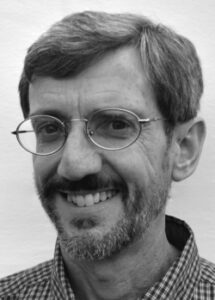When people of faith are faced with life and death decisions, does what they believe make a difference? One would like to think so. Yet a 2009 study of patients with advanced metastatic cancer in the Journal of the American Medical Association suggests otherwise. Christians at the end of life seemed as a fearful of death as those without faith. In my own experience as a family physician over the last 30 years, it was noteworthy when a person applied their faith to a crucial medical decision. The norm was to depend on the medical system for deliverance. People fear death in our modern world- that is no surprise. What should disturb the pastors and priests is when the people in their pews fear it just as much.
I was in a small group at one time with some very advanced Christians. What I mean is that they were leaders in the church, and had been living out their lives as people of faith for a long time. But during the course of our time together, several faced some significant health crises. In each case, I watched dumbfounded as the fear of sickness and death, though remote at the time, made them incapable of understanding the facts for making faithful decisions. The medical system offered abundant choice, but little help to discern what was good.
We cannot help but be thankful for the vast array of medical opportunities for healing in our day and age. My own family has received many benefits, as I’m sure you and yours have too. But should we depend on the health care system to deliver us from whatever limits us, even to the point of asking for the natural patterns of birth, life, sickness and death to be permanently altered. The desire to “live long and prosper”, as Commander Spock of Star Trek fame was fond of saying, is deep and natural. Where we place this hope has become one of the most crucial issues of our day.
This analogy is a little thin, but I’ll try it. A technical solution from medicine when what you really fear is dying can be compared to going to MacDonald’s when you're hungry. You find something you like, you make your choice, and after you eat you’re satisfied. But the hunger soon returns and you have to go back again, and again, and again. Before the universal fear of death, the Word of God sets a rich banquet table of eternal hope. Without this essential nutrition, fast food in moderation becomes a steady diet that inhibits our health and limits our well-being.
When a deep need remains unsatisfied, there is no choice but to continue to consume, even at the risk of denying others something to eat. The incredible growth of resources dedicated to health care in the last 50 years has many factors. What is rarely addressed is how health is pursued when we struggle to conceive of how life can be well-lived in the face of death. Until we address this component of our modern social life, both the growth in spending on health care and the unjust distribution of these vital resources will continue to plague us. Only a faith in life beyond life can offer balance and hope in the face of life’s tragic realities. Are the people of God up to the task?

